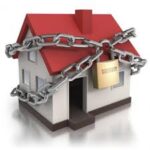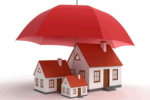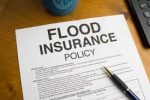Understanding ‘Replacement Cost’ in Your Home Insurance Policy

With the recent “disasters” nationwide, it has become clear to me that very few homeowners understand that they need to ensure that their policies cover replacement cost for their homes. To ensure that you can rebuild your house at the current market costs and codes, you MUST have replacement cost valuations and insurance coverages.
Whether you are dealing with missing tiles on the roof or a collapsed ceiling, knowing how replacement cost works can mean the difference between making do with quick fixes or restoring your home to its original condition.
Replacement cost is an option you usually choose when purchasing or renewing your homeowner’s insurance policy. It’s one way of valuing the property being insured – so it will affect how much your insurance pays out for a covered claim. Depending on the insurer and the policy you are getting, you may be able to choose replacement cost when insuring your home and roof (the dwelling itself), unattached structures (such as a shed, fence, detached garage, and pool), and your personal property (furniture, electronics, clothing, etc.).
Let’s say a hurricane sweeps through your neighborhood and leaves you with a seriously damaged roof. If your roof is covered at replacement cost in your policy, it means just what those words imply: Your roof will be covered for the amount of money it takes to repair/replace the damaged roof – using new material, of a similar kind and quality as your existing roof, without subtracting any depreciation based on the age and condition of your roof prior to the hurricane. In other words, replacement cost is about getting you back to the way things were, as if no storm had ever happened.
Choosing replacement cost in your home insurance policy for your dwelling and personal property is all about giving you enough to actually replace what you lost, whether it’s your roof, furniture, or the entire home.
How Is ‘Replacement Cost’ Different From ‘Actual Cash Value’?
While replacement cost gives you enough to rebuild or replace your items as new, actual cash value factors in depreciation. This means you’ll get the current value of your items – after subtracting certain amounts based on the property’s age, condition, and how outdated or obsolete it is at the time of the loss. The actual cash value approach might save you some money up front, on insurance premiums – but when it comes time to file a claim, it can leave you filling in the gap to fund repair costs
What About ‘Stated Value’?
Another valuation method is stated value. This is when you and your insurer agree on a specific value for your home or certain parts of it – such as your roof or certain high-value items – before any damage occurs. Then, when you make a claim, you’ll be reimbursed for the already agreed-upon value of the property. It’s a straightforward valuation method and it eliminates any haggling over depreciation during the claims process.
Why Replacement Cost Matters
In South Florida, natural disasters are a part of life. Between hurricanes, tropical storms, and the occasional fire, having the right kind of insurance coverage can make or break your ability to rebuild after a disaster.
With replacement cost coverage, you know you’ll have the funds to get back to normal. The difference in payout could run in the thousands to tens of thousands of dollars. You need to evaluate your risk tolerance and financial ability to restore your property to determine which level of insurance coverage is best for you.
















 Kim N. Bregman
Kim N. Bregman